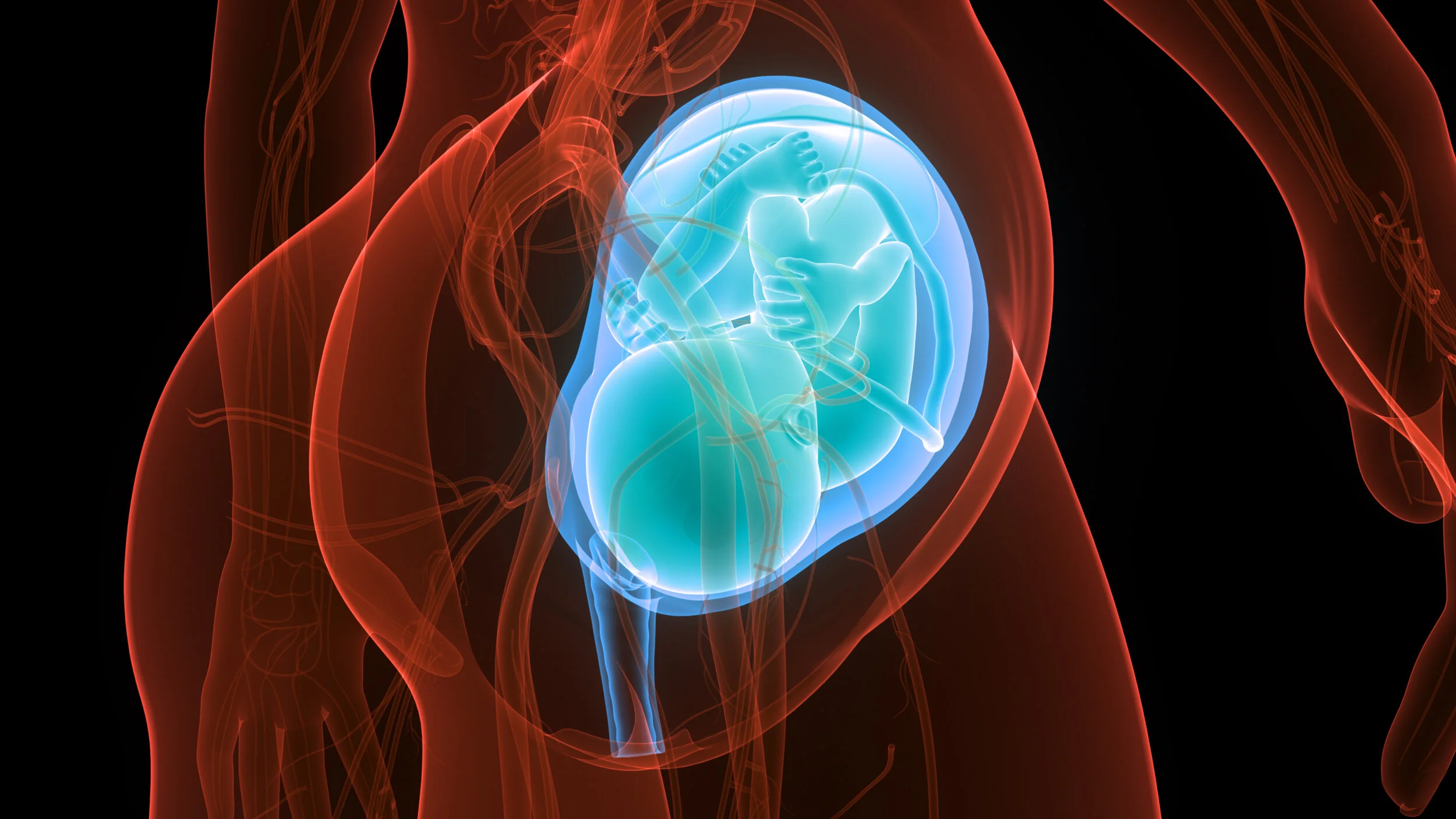The umbilical cord is responsible for in utero delivery of oxygenated blood from the placenta to the infant by way of the two umbilical veins and removal of waste products and waste gases from infant to the placenta by way of the umbilical arteries. The umbilical cord is also responsible for delivering adequate amounts of blood from the placenta to the infant in utero in order to support blood pressure and blood flow to vital organs such as the brain, heart, liver, and kidneys. During clinical situations in which cord compression is identified, blood flow in the umbilical cord is compromised to the point that there is either inadequate blood flow to and from the fetus or no blood flow at all. Due to either decreased or absent blood flow in the umbilical cord, sufficient amounts of oxygen and blood are prevented from reaching the infant prior to delivery and subsequent organ damage may occur. The effect of the prolapsed cord is demonstrated by the very abnormal fetal heart rate and require emergency Cesarean section. Low Apgar scores, seizures, and subsequent EEG and brain imaging study abnormalities are consistent with this mechanism of injury.
Umbilical cord compression medical expert witness specialties include obstetrics, maternal-fetal medicine, obstetric anesthesiology, maternal-fetal pathology, pediatric neurology, and neuropsychology.

